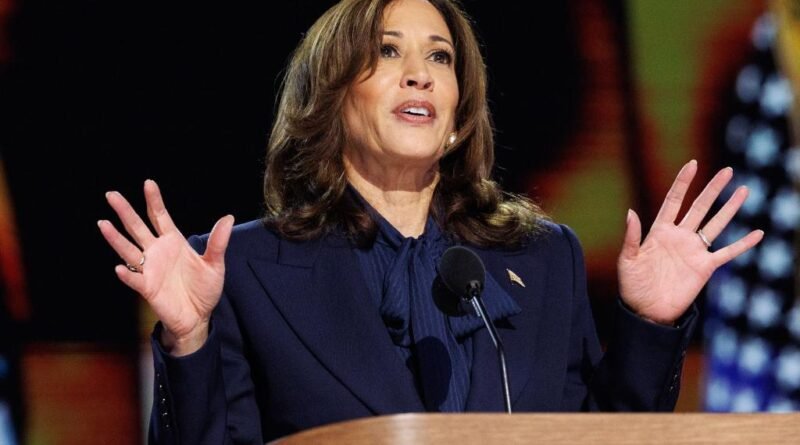Harris’ reversal on price control proves her lack of concern

Forget about it.
If you believed that addressing price gouging was a central component of Kamala Harris’s economic plan, as she mentioned in her economic speech a few weeks ago, you were mistaken.
Harris simply wanted to emphasize the importance she places on rising grocery prices.
It was merely a suggestion to introduce small-scale anti-price gouging laws similar to those seen at the state level.
However, it is unlikely that there will be enough votes to pass it through Congress.
In essence, there is nothing noteworthy here. Can we return to experiencing “the joy” now? Insert a humorous and clickable coconut meme here.
This is essentially what Democratic insiders have been whispering about a policy proposal by Harris that has garnered the most attention during her month-long campaign.
According to Politico, “Under pressure to defend Kamala Harris’ grocery price gouging plan, some Democratic lawmakers are delivering a quiet message to anxious allies: Don’t worry about the details. It’s never going to pass Congress.”
The Washington Post reports that Harris’s supporters “are arguing both publicly and privately that her plans have been taken out of context.”
The fact that Harris has flip-flopped on so many of her statements from her unsuccessful primary campaign suggests she wasn’t very adept at policy in 2019 and 2020.
The reversal on price gouging indicates she hasn’t improved much in 2024 either.
In her speech, Harris said: “So, believe me, as president, I will go after the bad actors. And I will work to pass the first-ever federal ban on price gouging on food. My plan will include new penalties for opportunistic companies that exploit crises and break the rules.”
It sounds dramatic, right? The “believe me” is a particularly nice touch, considering her supporters would likely be quick to question whether she should be believed.
The premise of the proposal was always absurd.
The notion that food companies and grocery stores suddenly started gouging consumers during a period of supply-chain disruptions, excessive government spending, low interest rates, and international turmoil amid historic inflation never made sense.
If they had such market power, they likely would have utilized it in the decades before Joe Biden oversaw a significant inflation rise.
It was equally ludicrous to believe that the government could make illegal a non-existent problem.
If the Federal Trade Commission, the supposed solution to all the alleged price gouging, can miraculously halt inflation, why didn’t the Biden administration use it when prices were rapidly rising?
It is safe to say that the FTC likely doesn’t know what the prices of eggs or paper towels should be.
The simplified version of the Harris proposal is that it is “a targeted expansion of existing state powers rather than new government ‘price controls’ that would transform the U.S. economy,” as the Post states.
These state laws are intended to prevent exploitative pricing during disasters. It’s unclear why the federal government itself needs a law prohibiting individuals from charging excessive prices for items like bottled water after hurricanes, or how such a law would address economy-wide inflation.
This attempt to backtrack and justify the Harris proposal wouldn’t be necessary if she hadn’t spoken so broadly about a new federal authority to regulate prices.
And she didn’t do it spontaneously, but rather read from a prepared script by advisors who presumably gave it some thought.
What we are now being told was a way to show how much Harris cares about combatting inflation really demonstrates how little she values what she says and proposes.
Her allies are providing a weak defense — essentially saying, “don’t pay attention, she’s just saying things that sound good.”
Twitter: @RichLowry



